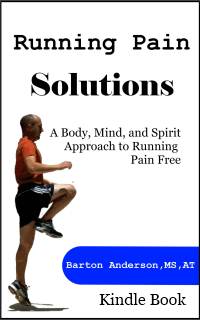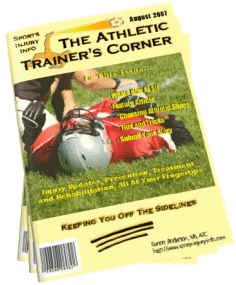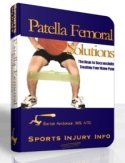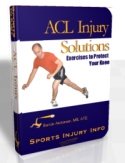What is The "Unhappy Triad"?
The unhappy triad is a common combination of three different injuries in the knee, and they often all occur together. The ACL tear, meniscus tear, and MCL tear make up this terrible triad, and can definitely ruin your day.Whoever said that bad things happen in threes was unfortunately right. Here's what you need to know about this sports injury...
The ACL Tear
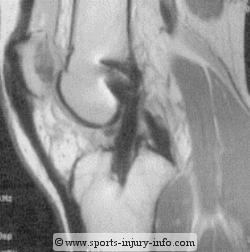
The worst part of the unhappy triad, the torn acl is the most significant of the three injuries. It requires surgery to fix, and can take months to a year to recover from.
Injury to the ACL leaves your knee unstable, often to simple straight forward walking. Without the ACL, your knee looses its ability to maintain normal function, and you experience episodes of giving way or buckling.
The Meniscus Tear
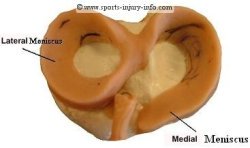
It is very commonly injured during athletic activity, and with an ACL tear.
Meniscus tears generally have to be treated surgically, because the meniscus does not have very good blood supply, and is very slow to heal. If left untreated, it produces pain, swelling, and popping or catching sensations in your knee.
The MCL tear
The medial collateral ligament runs along the inside of the knee, and helps to provide stability to the knee joint. Injury to this ligament makes up the thrid part of the triad. Injury to the MCL is significant, however, out of the three, it is the least problematic, and does not require surgery. Medial collateral ligament injury produces pain, some instability, decreased range of motion, and swelling.How It Happens
The Unhappy triad occurs most with contact injuries from football, rugby, and other high impact sports. It takes a significant amount of force to injure all three structures at the same time.While ACL tears and meniscus tears can occur with non-contact mechanisms such as a plant and turn, MCL injury requires some type of lateral blow or fall. So it is not as common among non-contact athletes.
A blow to the outside of your knee, like from a tackle, can cause this combination of injuries to occur. This places a great amount of stress on your knee and the ligaments, specifically the ACL and MCL.
As your knee continues along this path of stress, your ACL often tears, causing the knee to shift. As the knee shifts, your femur and tibia compress against the meniscus, and this causes tearing of the cartilage. And then, because of the position of your knee, the MCL will tear as well...not a pretty picture.
Treatment
Unfortunately, treatment for the unhappy triad requires surgery. Reconstruction of the ACL is the primary focus, and the damage to the meniscus is taken care of during this procedure. The MCL needs time and immobilization to heal correctly, and this can occur after the ACL surgery. Many times your surgeon may have you wait several weeks before ACL reconstruction to reduce swelling and improve your motion...this will also allow the MCL tear to begin to heal.Summary
The unhappy triad is a combination of an ACL tear, meniscus tear, and MCL tear, and usually occurs during contact sports. It requires surgical intervention, and rehabilitation following surgery.Didn't find what you were looking for? Search SII for more information...
Running Pain Solutions
Written for Runners by a runner, you'll learn a holistic approach to improving mobility, restoring normal movement and muscle activation patterns, and restoring the body and mind connection.
This Kindle Book contains a step by step program to keep you running pain free. Included are detailed instructions and illustrations for exercises to improve mobility, balance, neuromuscular control, strength and endurance. Only $7.49!
Get Your Copy Today!
